- Home
- Pam Jenoff
The Orphan's Tale Page 2
The Orphan's Tale Read online
Page 2
I was still living at home in our village the first time I had seen the sorry roundup of men, women and children in the market square. I had run to my father, crying. He was a patriot and stood up for everything else—why not this? “It’s awful,” he conceded through his graying beard, stained yellow from pipe smoke. He had wiped my tear-stained cheeks and given me some vague explanation about how there were ways to handle things. But those ways had not stopped my classmate Steffi Klein from being marched to the train station with her younger brother and parents in the same dress she’d worn to my birthday a month earlier.
The sound continues to grow, almost a keening now, like a wounded animal in the brush. I scan the empty platform and peer around the edge of the station. Can the police hear the noise, too? I stand uncertainly at the platform’s edge, peering down the barren railway tracks that separate me from the boxcar. I should just walk away. Keep your eyes down, that has been the lesson of the years of war. No good ever came from noticing the business of others. If I am caught nosing into parts of the station where I do not belong, I will be let go from my job, left without a place to live, or perhaps even arrested. But I have never been any good at not looking. Too curious, my mother said when I was little. I have always needed to know. I step forward, unable to ignore the sound that, as I draw closer now, sounds like cries.
Or the tiny foot that is visible through the open door of the railcar.
I pull back the door. “Oh!” My voice echoes dangerously through the darkness, inviting detection. There are babies, tiny bodies too many to count, lying on the hay-covered floor of the railcar, packed close and atop one another. Most do not move and I can’t tell whether they are dead or sleeping. From amid the stillness, piteous cries mix with gasps and moans like the bleating of lambs.
I grasp the side of the railcar, struggling to breathe over the wall of urine and feces and vomit that assaults me. Since coming here, I have dulled myself to the images, like a bad dream or a film that couldn’t possibly be real. This is different, though. So many infants, all alone, ripped from the arms of their mothers. My lower stomach begins to burn.
I stand helplessly in front of the boxcar, frozen in shock. Where had these babies come from? They must have just arrived, for surely they could not last long in the icy temperatures.
I have seen the trains going east for months, people where the cattle and sacks of grain should have been. Despite the awfulness of the transport, I had told myself they were going somewhere like a camp or a village, just being kept in one place. The notion was fuzzy in my mind, but I imagined somewhere maybe with cabins or tents like the seaside campsite south of our village in Holland for those who couldn’t afford a real holiday or preferred something more rustic. Resettlement. In these dead and dying babies, though, I see the wholeness of the lie.
I glance over my shoulder. The trains of people are always guarded. But here there is no one—because there is simply no chance of the infants getting away.
Closest to me lies a baby with gray skin, its lips blue. I try to brush the thin layer of frost from its eyelashes but the child is already stiff and gone. I yank my hand back, scanning the others. Most of the infants are naked or just wrapped in a blanket or cloth, stripped of anything that would have protected them from the harsh cold. But in the center of the car, two perfect pale pink booties stick stiffly up in the air, attached to a baby who is otherwise naked. Someone had cared enough to knit those, stitch by stitch. A sob escapes through my lips.
A head peeks out among the others. Straw and feces cover its heart-shaped face. The child does not look pained or distressed, but wears a puzzled expression, as if to say “Now what am I doing here?” There is something familiar about it: coal-dark eyes, piercing through me, just as they had the day I had given birth. My heart swells.
The baby’s face crumples suddenly and it squalls. My hands shoot out, and I strain to reach it over the others before anyone else hears. My grasp falls short of the infant, who wails louder. I try to climb into the car, but the children are packed so tightly, I can’t manage for fear of stepping on one. Desperately, I strain my arms once more, just reaching. I pick up the crying child, needing to silence it. Its skin is icy as I pluck it from the car, naked save for a soiled cloth diaper.
The baby in my arms now, only the second I’d ever held, seems to calm in the crook of my elbow. Could this possibly be my child, brought back to me by fate or chance? The child’s eyes close and its head bows forward. Whether it is sleeping or dying, I cannot say. Clutching it, I start away from the train. Then I turn back: if any of those other children are still alive, I am their only chance. I should take more.
But the baby I am holding cries again, the shrill sound cutting through the silence. I cover its mouth and run back into the station.
I walk toward the closet where I sleep. Stopping at the door, I look around desperately. I have nothing. Instead I walk into the women’s toilet, the usually dank smell hardly noticeable after the boxcar. At the sink, I wipe the filth from the infant’s face with one of the rags I use for cleaning. The baby is warmer now, but two of its toes are blue and I wonder if it might lose them. Where did it come from?
I open the filthy diaper. The child is a boy like my own had been. Closer now I can see that his tiny penis looks different from the German’s, or that of the boy at school who had shown me his when I was seven. Circumcised. Steffi had told me the word once, explaining what they had done to her little brother. The child is Jewish. Not mine.
I step back as the reality I had known all along sinks in: I cannot keep a Jewish baby, or a baby at all, by myself and cleaning the station twelve hours a day. What had I been thinking?
The baby begins to roll sideways from the ledge by the sink where I had left him. I leap forward, catching him before he falls to the hard tile floor. I am unfamiliar with infants and I hold him at arm’s length now, like a dangerous animal. But he moves closer, nuzzling against my neck. I clumsily make a diaper out of the other rag, then carry the child from the toilet and out of the station, heading back toward the railcar. I have to put him back on the train, as if none of this ever happened.
At the edge of the platform, I freeze. One of the guards is now walking along the tracks, blocking my way back to the train. I search desperately in all directions. Close to the side of the station sits a milk delivery truck, the rear stacked high with large cans. Impulsively I start toward it. I slide the baby into one of the empty jugs, trying not to think about how icy the metal must be against his bare skin. He does not make a sound but just stares at me helplessly.
I duck behind a bench as the truck door slams. In a second, it will leave, taking the infant with it.
And no one will know what I have done.
2
Astrid
Germany, 1942—fourteen months earlier
I stand at the edge of the withered grounds that had once been our winter quarters. Though there has been no fighting here, the valley looks like a battlefield, broken wagons and scrap metal scattered everywhere. A cold wind blows through the hollow window frames of the deserted cabins, sending tattered fabric curtains wafting upward before they fall deflated. Most of the windows are shattered and I try not to wonder if that had happened with time, or if someone had smashed them in a struggle or rage. The creaking doors are open, properties fallen into disrepair as they surely never would have if Mama been here to care for them. There is a hint of smoke on the air as though someone has been burning brush recently. In the distance, a crow cries out in protest.
Drawing my coat closer around me, I walk away from the wreckage and start up toward the villa that once was my home. The grounds are exactly as they had been when I was a girl, the hill rising before the front door in that way that sent the water rushing haphazardly into the foyer when the spring rains came. But the garden where my mother tended hydrangeas so lovingly each spring is with
ered and crushed to dirt. I see my brothers wrestling in the front yard before being cowed into practice, scolded for wasting their energy and risking an injury that would jeopardize the show. As children we loved to sleep under the open sky in the yard in summer, fingers intertwined, the sky a canopy of stars above us.
I stop. A large red flag with a black swastika hangs above the door. Someone, a high-ranking SS officer no doubt, has moved into the home that once was ours. I clench my fists, sickened to think of them using our linens and dishes, soiling Mama’s beautiful sofa and rugs with their boots. Then I look away. It is not the material things for which I mourn.
I search the windows of the villa, looking in vain for a familiar face. I had known that my family was no longer here ever since my last letter returned undeliverable. I had come anyway, though, some part of me imagining life unchanged, or at least hoping for a clue as to where they had gone. But wind blows through the desolate grounds. There is nothing left anymore.
I should not be here either, I realize. Anxiety quickly replaces my sadness. I cannot afford to loiter and risk being spotted by whoever lives here now, or face questions about who I am and why I have come. My eyes travel across the hill toward the adjacent estate where the Circus Neuhoff has their winter quarters. Their hulking slate villa stands opposite ours, two sentries guarding the Rheinhessen valley between.
Earlier as the train neared Darmstadt, I saw a poster advertising the Circus Neuhoff. At first, my usual distaste at the name rose. Klemt and Neuhoff were rival circuses and we had competed for years, trying to outdo one another. But the circus, though dysfunctional, was still a family. Our two circuses had grown up alongside one another like siblings in separate bedrooms. We had been rivals on the road. In the off-season, though, we children went to school and played together, sledding down the hill and occasionally sharing meals. Once when Herr Neuhoff had been felled by a bad back and could not serve as ringmaster, we sent my brother Jules to help their show.
I have not seen Herr Neuhoff in years, though. And he is Gentile, so everything has changed. His circus flourishes while ours is gone. No, I cannot expect help from Herr Neuhoff, but perhaps he knows what became of my family.
When I reach the Neuhoff estate, a maidservant I do not recognize opens the door. “Guten Abend,” I say. “Ist Herr Neuhoff hier?” I am suddenly shy, embarrassed to arrive unannounced on their doorstep like some sort of beggar. “I’m Ingrid Klemt.” I use my maiden name. The woman’s face reveals that she already knows who I am, though from the circus or from somewhere else, I cannot tell. My departure years earlier had been remarkable, whispered about for miles around.
One did not leave to marry a German officer as I had—especially if one was Jewish.
Erich had first come to the circus in the spring of 1934. I noticed him from behind the curtains—it is a myth that we cannot see the audience beyond the lights—not only because of his uniform but because he sat alone, without a wife or children. I was not some young girl, easily wooed, but nearly twenty-nine. Busy with the circus and constantly on the road, I had assumed that marriage had passed me by. Erich was impossibly handsome, though, with a strong jaw marred only by a cleft chin, and square features softened by the bluest of eyes. He came a second night and pink roses appeared before my dressing room door. We courted that spring, and he made the long trip down from Berlin every weekend to the cities where we performed to spend time with me between shows and on Sundays.
We should have known even then that our relationship was doomed. Though Hitler had just come to power a year earlier, the Reich had already made clear its hatred for the Jews. But there was passion and intensity in Erich’s eyes that made everything around us cease to exist. When he proposed, I didn’t think twice. We did not see the problems that loomed large, making our future together impossible—we simply looked the other way.
My father had not fought me on leaving with Erich. I expected him to rebuke me for marrying a non-Jew, but he only smiled sadly when I told him. “I always thought you would have taken over the show for me,” he’d said, his sad chocolate eyes a mirror of my own behind his spectacles. I was surprised. I had three older brothers, four if you counted Isadore, who had been killed at Verdun; there was no reason to think that Papa might have considered me. “Especially with Jules taking his own branch of the show to Nice. And the twins...” Papa had shaken his head ruefully. Mathias and Markus were strong and graceful, performing acrobatic marvels that made the audience gasp. Their skills were purely physical, though. “It was you, liebchen, with the head for business and the flair of showmanship. But I’m not going to keep you like a caged animal.”
I’d never known he saw me that way. Only now I was leaving him. I could have changed my mind and stayed. But Erich and the life I thought I always wanted beckoned. So I left for Berlin, taking Papa’s blessing with me.
Perhaps if I hadn’t, my family might still be here.
The maid ushers me to a sitting room that, though still grand, shows signs of wear. The rugs are a bit frayed and there are some spaces in the silver cabinet that are empty, as though the bigger pieces had been taken or sold. Stale cigar smoke mixes with the scent of lemon polish. I peer out the window, straining to see my family’s estate through the fog that has settled above the valley. I wonder who lives in our villa now and what they see when they look down at the barren deserted winter quarters.
After our wedding, a small ceremony with a justice of the peace, I moved into Erich’s spacious apartment overlooking the Tiergarten. I spent my days strolling the shops along Bergmannstrasse, buying richly colored paintings and rugs and embroidered satin pillows, little things that would make his once-sparse quarters our home. Our biggest dilemma was which café to frequent for Sunday brunch.
I’d been in Berlin for almost five years when the war broke out. Erich received a promotion to something I didn’t understand having to do with munitions and his days became longer. He would come home either dark and moody, or heady with excitement about things he could not share with me. “It will all be so different when the Reich is victorious, trust me.” But I didn’t want different. I liked our life just as it had been. What was so wrong with the old ways?
Things had not gone back to the way they had been, though. Instead they worsened rapidly. They said awful things about Jews on the radio and in the newspapers. Jewish shop windows were broken and doors painted. “My family...” I’d fretted to Erich over brunch in our Berlin apartment after I’d seen the windows of a Jewish butcher shop on Oranienburger Strasse shattered. I was the wife of a German officer. I was safe. But what about my family back home?
“Nothing will hurt them, Inna,” he soothed, rubbing my shoulders.
“If it’s happening here,” I pressed, “then Darmstadt can be no better.”
He wrapped his arms around me. “Shh. There have just been a few acts of vandalism in the city, a showing. Look around you. Everything is fine.” The apartment was scented with the smell of rich coffee. A pitcher of fresh orange juice sat on the table. Surely it could not be so much worse elsewhere. I rested my head on the broad shelf of Erich’s shoulder, inhaling the familiar warmth of his neck. “The Klemt family circus is internationally known,” he reassured. He was right. Our family circus had been generations in the making, born from the old horse shows in Prussia—my great-great-grandfather, they said, had left the Lipizzaner Stallions in Vienna to start our first circus. And the next generation had followed and the one after that, the very oddest sort of family business.
Erich continued, “That’s why I stopped to see the show on my way back from Munich that day. And then I saw you...” He pulled me onto his lap.
I raised my hand, cutting him off. Normally I loved his retelling of how we met, but I was too worried to listen. “I should go check on them.”
“How will you find them on tour?” he asked, a note of impatience creeping into his voice. It was
true; midsummer, they could be almost anywhere in Germany or France. “And what would you do to help them? No, they would want you to stay here. Safe. With me.” He nuzzled me playfully.
He was right of course, I had told myself, lulled by his lips upon my neck. But still the worry nagged. Then one day the letter came. “Dearest Ingrid, we have disbanded the circus...” Papa’s tone was matter-of-fact, no plea for help, though I could only imagine his anguish at taking apart the family business that had flourished for more than a century. It did not say what they would do next or if they would leave, and I wondered if that was by design.
I wrote immediately, begging him to tell me what their plans were, if they needed money. I would have brought the whole family to Berlin and fit them into our apartment. But that would only have meant drawing them closer to the danger. In any event, the point was moot: my letter came back unopened. That had been six months earlier and there had been no word. Where had they gone?
“Ingrid!” Herr Neuhoff booms as he enters the sitting room. If he is surprised to see me, he gives no indication. Herr Neuhoff is not as old as my father and in my childhood memories, he had been dashing and handsome, if portly, with dark hair and a mustache. But he is shorter than I remembered, with a full stomach and just a gray fringe of hair. I rise and start toward him. Then, seeing the small swastika pin on his lapel, I stop. Coming here had been a mistake. “For appearances,” he says hastily.
“Yes, of course.” But I am not sure whether to believe him. I should just go. His face appears genuinely glad to see me, though. I decide to take a chance.
He gestures to a chair overlaid with lace and I sit, perching uneasily. “Cognac?” he offers.
I falter. “That would be lovely.” He rings a bell and the same woman who answered the door brings in a tray—one house servant where there used to be many. The Circus Neuhoff has not been left untouched by the war. I feign a sip from the glass she offers me. I do not want to be rude, but I need to keep my head about me to figure out where I am going from here. There is no resting place for me in Darmstadt anymore.

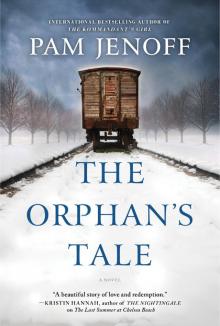 The Orphan's Tale
The Orphan's Tale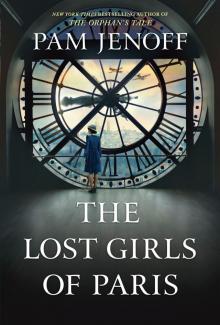 The Lost Girls of Paris
The Lost Girls of Paris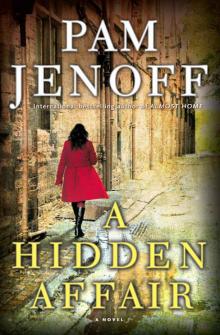 A Hidden Affair: A Novel
A Hidden Affair: A Novel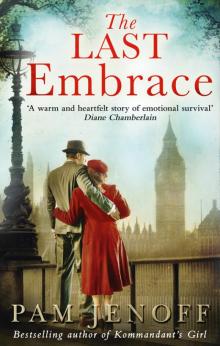 The Last Embrace
The Last Embrace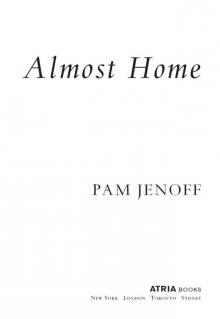 Almost Home: A Novel
Almost Home: A Novel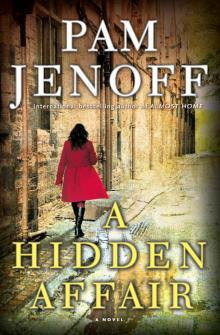 A Hidden Affair
A Hidden Affair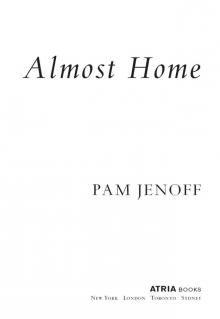 Almost Home
Almost Home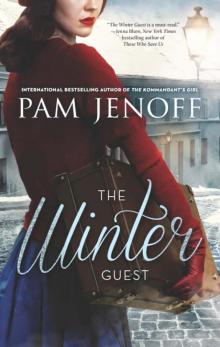 The Winter Guest
The Winter Guest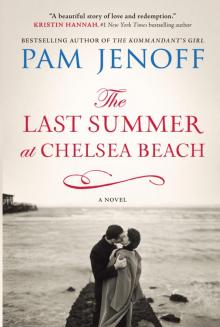 The Last Summer at Chelsea Beach
The Last Summer at Chelsea Beach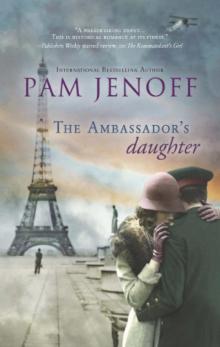 The Ambassador's Daughter
The Ambassador's Daughter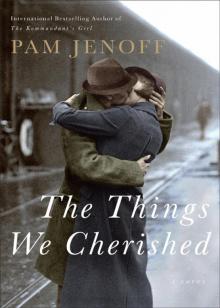 The Things We Cherished
The Things We Cherished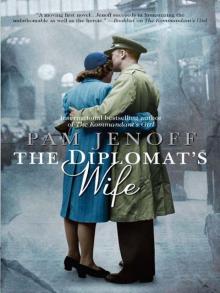 The Diplomat's Wife
The Diplomat's Wife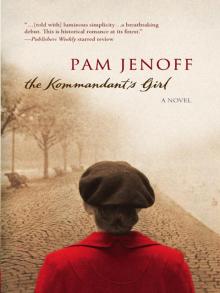 The Kommandant's Girl
The Kommandant's Girl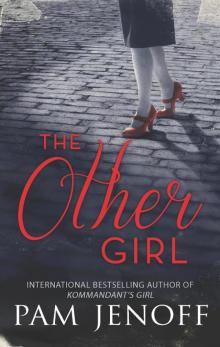 The Other Girl
The Other Girl